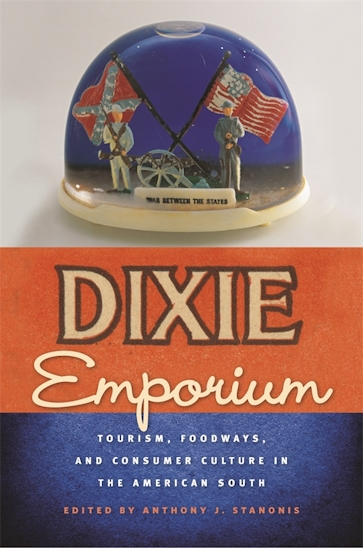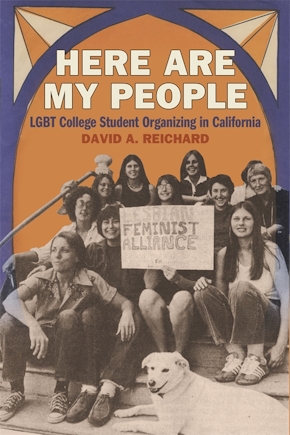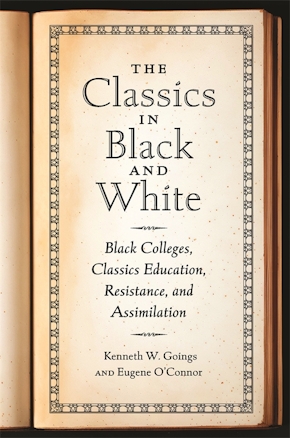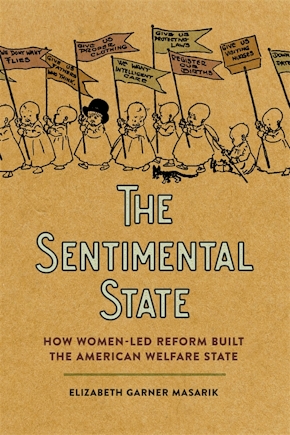Dixie Emporium
Tourism, Foodways, and Consumer Culture in the American South
Title Details
Pages: 312
Illustrations: 28 b&w photos
Trim size: 6.120in x 9.250in
Formats
Paperback
Pub Date: 10/15/2008
ISBN: 9-780-8203-3169-0
List Price: $36.95
Dixie Emporium
Tourism, Foodways, and Consumer Culture in the American South
Skip to
- Description
- Reviews
- Contributors
This collection of ten essays focuses on how southerners have marketed themselves to outsiders. The cultural ironies and contradictions that have arisen from southerners' efforts to commodify their identity reveal regional anxieties about consumerism, tourism, and memory.
The book's first section looks at southern souvenirs as abstractions of regional culture. Essays on such topics as Confederate imagery on consumer goods and the tacky figurine known as the Horny Hillbilly unpack the often incongruous meanings bestowed on souvenirs by their owners. Locales like Branson, Missouri, and the South of the Border tourist complex in South Carolina are discussed in the second section's essays, which consider how tourist sites can both exploit and depend on local culture. Recognizing the deep cultural meanings associated with food and eating, the final group of essays looks at the Krispy Kreme doughnut franchise, the themed Baltimore eatery Café Hon, and other manifestations of southern foodways.
Viewing a region often at odds with itself on matters like race and religion, Dixie Emporium identifies spaces, services, and products that construct various Souths that exaggerate, refute, or self-consciously safeguard elements of southernness.
These engaging essays provide a unique and timely perspective on efforts to understand how the South achieved an imaginative unity as a distinctive place. They open up more fully than before the ways that tourists and investors have stimulated regional self-definition. The volume reveals fascinating new understandings of the commercializations of the southern identity.
—Charles Reagan Wilson, University of Mississippi
'Shopping' at the Dixie Emporium is a delightful and thought-provoking experience. This essay collection explores the roles of souvenirs, religion, tourist traps, the civil rights movement, and regionally distinctive foodways in both making and marketing the image of the South. Come on in, check out the tacky trinkets in Branson, Missouri, or at Pedro’s South of the Border, grab a Krispy Kreme doughnut or some crab cakes from the Café Hon, and by all means pick up a 'Horny Hillbilly' before you leave.
—Daniel Pierce, author of The Great Smokies: From Natural Habitat to National Park
This excellent collection of essays explores, from a variety of vantages, consumerism and the marketing of regional identities in and of the American South. Dixie Emporium will appeal to a wide audience, including not only shcolars of tourism, foodways, and consumerism, but also those who focus on memory, material culture, religion, the civil rights movement, the New South (and the "new" New South), and the senses.
—Southern Quarterly
[A] rich collection, fizzing with ideas, examples and reifications of America’s South . . . demonstrates just how much common ground there is between various social sciences and how much we lose by retreating within our disciplinary boundaries.
—Journal of American Studies
For the manifold pleasures its contributors take in exploring their varied subjects, Dixie Emporium is well worth the price of admission. Its value is boosted, too, as a result of its serious intent.
—Journal of Southern History
Aaron K. Ketchell
Carolyn de la Peña
Eric W. Plaag
Glenn T. Eskew
John M. Giggie
John Shelton Reed
Karen L. Cox
Mary Rizzo
Nicole King
Patrick Huber
Ted Ownby
W. Fitzhugh Brundage



